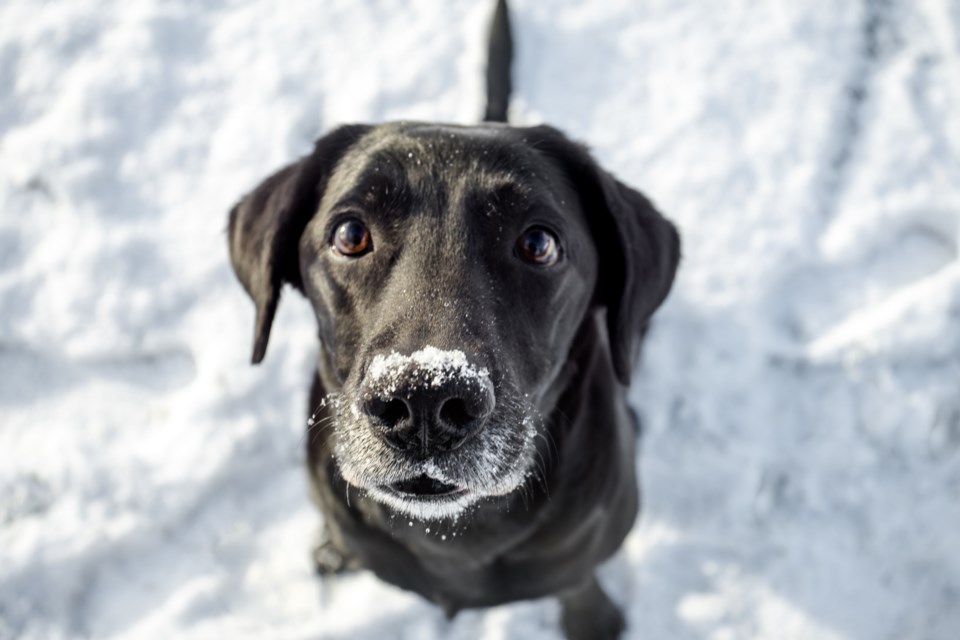With Old Man Winter continuing his icy grip on the region, people are being urged to take precautions when it comes to their pets.
Temperatures are expected to remain well below zero for the next few days and the BC SPCA has some advice for pet owners.
Guardians should watch for the salt or sand used on sidewalks as it can get between a dog’s paw pads or toes. Pet guardians don’t want their furry friends licking or ingesting it during or after a walk as the products can irritate the mouth, paws and skin and can cause stomach upset and electrolyte imbalances if ingested.
Other cold-weather tips include:
- Paw pads: Dry your pet’s paw pads after being outside and clean between their toes and pads.
- Sidewalks: For your own sidewalk, choose a pet-friendly, non-corrosive de-icing compound readily available through retail outlets. It’s also important to walk slowly and carefully when conditions are icy or slippery because, like humans your canine companion can slip and injure themselves.
- Stay inside: Consider fun activities inside if it’s too cold to be out and about with your dog.
- Antifreeze beware: Use pet-safe, propylene glycol-based antifreeze instead of ethylene glycol-based antifreeze, which is toxic to wildlife and pets. A mere tablespoon of antifreeze made with ethylene glycol can kill a cat or small dog. There are options for animal-friendly antifreeze that has anti-corrosive properties, is biodegradable and is recyclable.
And while all dogs come with a natural fur coat, some dogs have thin fur which does little to protect them from winter's chill and the family dog can suffer from exposure just like a human.
If temperatures are extremely cold, guardians may want to think about getting their dog a winter jacket or covering. Dog shoes and/or booties might also be considered to protect their paws.
Puppies and older dogs may find it more difficult to control their body temperature and dogs with heart disease or diabetes are also at a greater risk of getting frostbite because these conditions reduce blood flow to their extremities.
Signs of hypothermia include shivering, pale or grey gums, lethargy and stumbling or lack of co-ordination.
Domesticated animals are not the only ones people should consider during a cold snap.
A cat, raccoon or other such animal may snuggle up next to a warm car engine or other areas of a vehicle after it has been parked and the BC SPCA recommends tapping or lightly thumping the hood of a car and allow time for a four-legged friend to make its escape before starting the vehicle.
And while it should go without saying, the BC SPCA strongly urges people to keep all animals indoors during cold weather.
If a domestic or farm animals must be kept outside, ensure they have access to shelter that is off the ground, provides protection from wind, cold and dampness, and is properly insulated.



